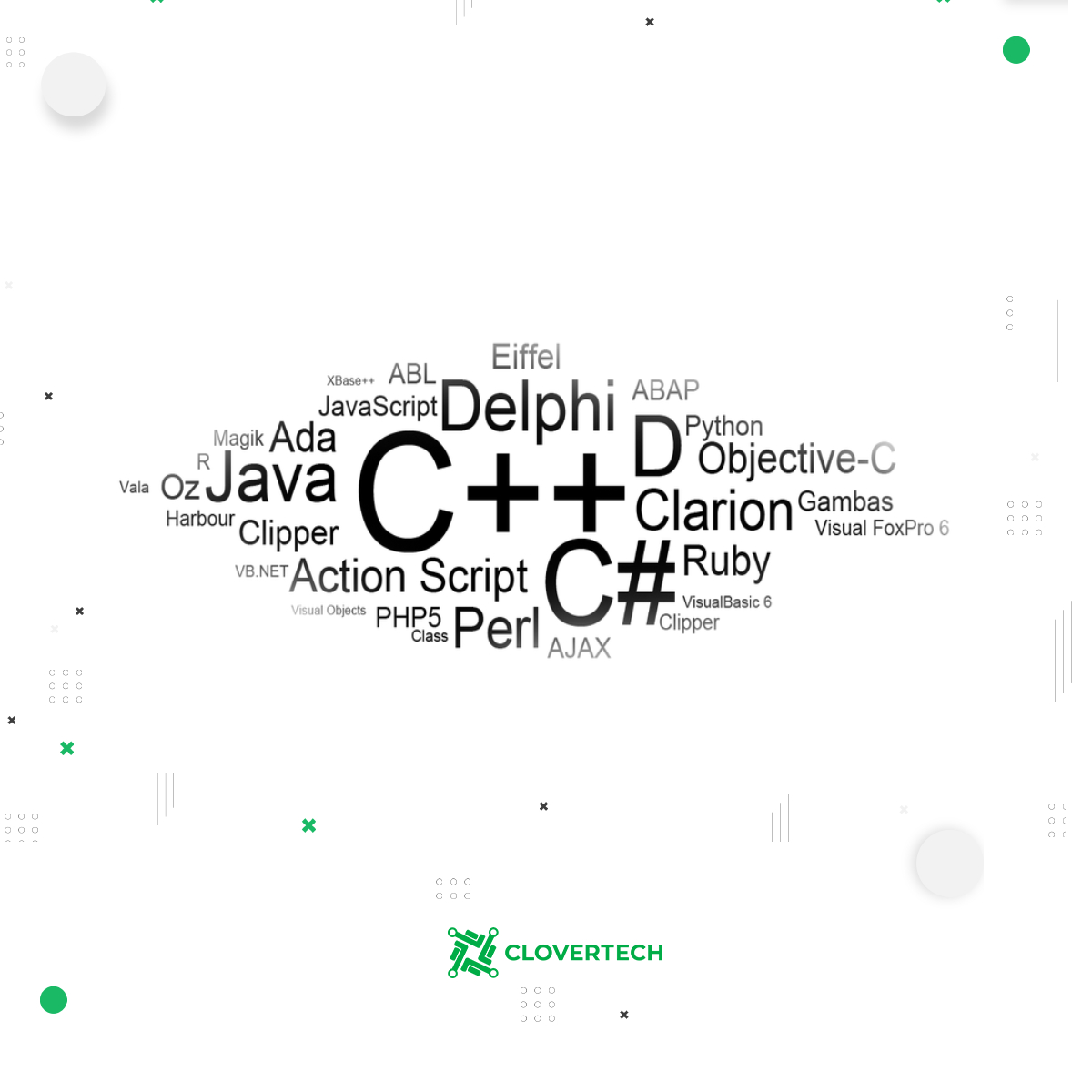Nowadays, artificial intelligence is widely used in our everyday life, e.g. for generating personalized shopping recommendations and advertisements at online shopping services, recognizing written and spoken text for machine translation systems, powering cars navigation, and many others.
In this article, we will review some of the most popular programming languages for AI. We will talk about their pros and cons, and make a conclusion based on this information.
Which languages are most used for AI?
We can highlight several programming languages that fit best for understanding and developing AI systems:
- Python
- Java
- C++
- LISP
- Prolog
- R
Let’s take a look at these.
Python
Thanks to its flexibility and simple syntax, Python is the ideal coding language used for machine learning. It also includes pre-existing libraries (e.g. SciPy, Pandas, etc.), which make it easier to use even for developers who are new to AI.
Python’s pros:
- Dynamic typing
- Usage of readable keywords
- Large library available
- High productivity level
Python’s cons:
- It is quite slow
- Does not fit well for mobile programming
- Access to databases
Python AI programming’s popularity grows. It is surely worth paying attention to.
Java
Java is chosen thanks to its smooth and simple Virtual Machine, which enables AI development on different platforms, and provides a user-friendly interface and outstanding speed. It also is an open-source language, supporting lots of libraries. The language suits both small and large-scale software projects since it is good for handling massive infrastructures. Java is probably the world’s most popular programming language. However, it is better to be aware of the potential issues that may occur while using the language.
Java’s pros:
- It is object-oriented, efficient, convenient, and secure
- Offers easier code debugging
- Provides an independent platform
Java’s cons:
- Difficult coding
- It takes much memory space
C++
This language is a great option for projects based on machine learning. C++ compiler ensures an outstanding speed, which is required for AI development since it involves lots of calculations.
The language also provides numerous libraries and instruments, scalability, and its performance is great too.
C++’s pros:
- It is object-oriented
- Is scalable and portable
- Provides many libraries and instruments
- Compatible with C
C++’s cons:
- Does not provide a garbage collector
- Low level of security
- Uses pointers
LISP
LISP is widely popular for AI development. Actually, AI was born as a term after LISP had been launched. Nevertheless, Python and C are more common for AI programming nowadays.
LISP’s pros:
- Fast SBCL
- Suits well for functional coding
- Is simple to use
- Includes powerful macros
LISP’s cons:
- Has a quite difficult syntax
- Is not widely used
- Its ecosystem is poor
Prolog
Prolog is a logical programming language. It differs from the languages that are considered to be common for AI development. It operates on automatic backtracking and matching. The language also requires goals and rules specifying and that may repulse a developer from using it. It is rather useful for creating research and academic projects, especially for ones that use artificial intelligence.
Prolog’s pros:
- It is simple to use
- Offers good problem solutions
- Is able to manipulate symbolic information
- Is self-training
Prolog’s cons:
- Flawed code
- Has poor structure and readability issues
R
R is an open-source language that includes lots of packages and allows machine learning, offers analytical tools, and data mining.
According to the latest surveys, this language is most widely used by developers who work with big data. It suits best for working with huge numbers. However, the language hasn’t still gained wide-range popularity, since it is not suitable for common purposes and is best for statistics products. But there is no other language to be more efficient for processing lots of data.
R’s pros:
- Smooth compatibility
- Numerous packages
- Significant graphics
R’s cons:
- Low level of security
- Poor rapidness
Conclusion
It is difficult to name the best programming language for AI that will suit perfectly for everyone. The most suitable language for AI development depends on your expectations from it and your background. We can highlight several factors considering which it may be easier to choose a language: product’s end-users and expected size, the niche, expected difficulties, personal expectations (programming speed, simplicity, etc.).




